Customers are always on the lookout for deals. And price comparison websites, which compare product prices, shipping prices, and coupon codes from multiple realtors, are online destinations that help them make informed decisions.
Comparison sites and apps don’t just benefit customers, they also allow ecommerce merchants to attract new visitors. Comparison shoppers are already interested in buying, making them an ideal audience for promoting sales and discounts.
Whether you’re checking a product deal on Amazon Prime Day or simply browsing for bargains, here are the 25 best sites to compare prices on right now.
Plus, advice for merchants who want to list their products onselling sites and marketplaces.
Table of Contents
♂️What’s in this post?This list is split into three sections: the best price comparison sites for US (and global) users; price comparison sites for users outside the US, and the best websites and apps for Shopify merchants who want to add price comparison features to their stores.
25 best price comparison websites and apps
- Google Shopping
- Shopzilla
- Become
- Bizrate
- Camelcamelcamel
- ShopMania
- BuyVia
- ShopSavvy
- Yahoo! Shopping
- Pricepirates
- Honey
- Price.com
- PriceRunner
- SkinFlint
- Shopbot
- Pricebat
- Getprice
- PriceSpy
- Prisync
- PriceMole
- MyShopping Datafeed
- Price Comparison and Affiliate by Arrow
- Product Compare
- Compare Products by Omega
- Lengow
Best US price comparison websites and apps
1. Google Shopping
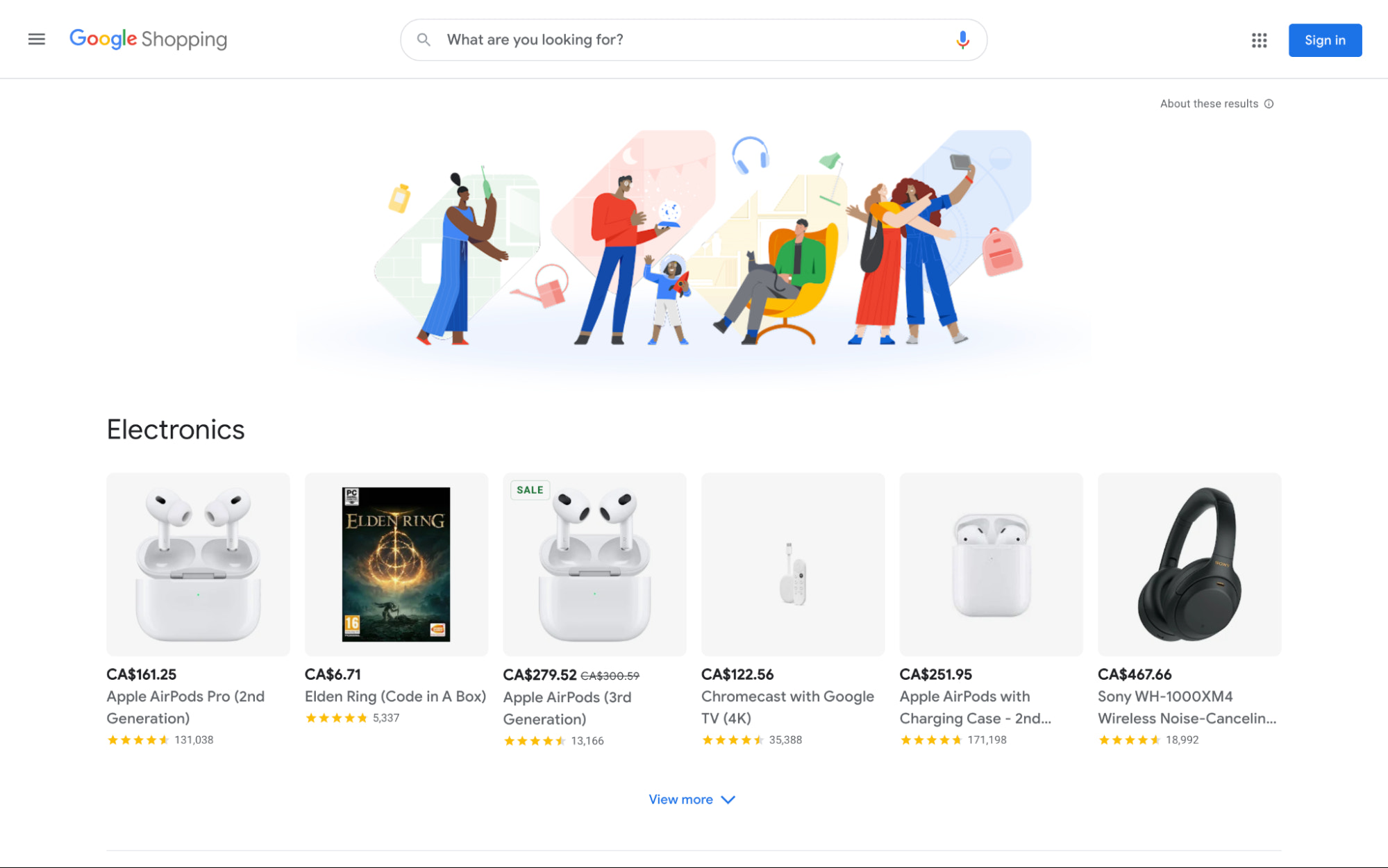
Google Shoppingis one of the largest and best-known price comparison sites. Products submitted to Google Shopping also appear in standard Google search results and integrate withGoogle Ads, the pay-per-click platform.
For merchants, Google has abeta benchmarking toolfor product prices on Shopping ads. This tool displays three metrics for comparing prices against the competition:
- Average product price:the average price of a product when your ad was shown or when your ad was competitive in an auction
- Benchmark product price:the average click-weighted price for a product across all businesses that advertise that product with Shopping ads
- Benchmark product price difference:the percentage difference between your product’s average product price and the benchmark product price
2. Shopzilla

Since 1996, customers looking for deals have headed toShopzilla. This comparison site lists millions of products, so the selection is vast and competition can be tough.
Merchants wanting to use Shopzilla to generateextra salesshould know that it’s aConnexitycompany. That means you can also access its entire advertising network to find new customers and channels.
3. Become
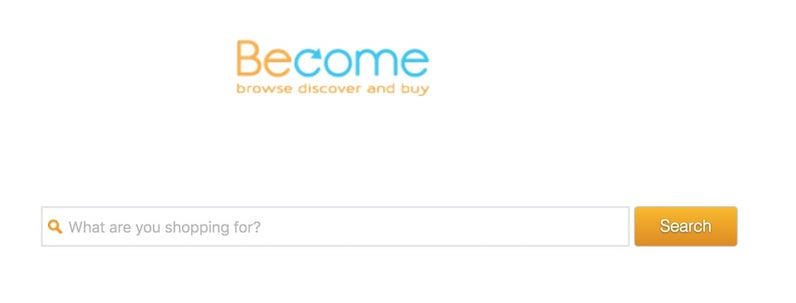
Become可能有一个基本的网站设计,但其大product library allows shoppers to effectively compare prices, read and write product reviews, and search for the best possible online shopping deals and lowest prices.
4. Bizrate

In addition to showing product and price comparisons,Bizrateallows customers to set price alerts for products they’re interested in. Bizrate is also a Connexity company, so merchants get access to performance marketing features for the open web.
5. Camelcamelcamel

Camelcamelcamel跟踪亚马逊产品价格随着时间的推移,历史shoppers can see historic pricing and trends. It’s also got abrowser extensionwith the option to add email or X alerts for price drops. Consumers can browse by category or conduct a search for specific products to compare prices.
Camelcamelcamel offers versions of its price comparison tool for the US, Australia, Canada, China, France, Germany, Italy, Japan, Spain, and the UK.
6. ShopMania

Available in more than30 countriesand with millions of monthly users,ShopManiais a price comparison tool that runs on a pay-per-click model. Consumers browse the categories or conduct a search on the website and you pay each time someone clicks on your product. ShopMania also works withFacebook selling.
To advertise your products on ShopMania, your business must:
- Be a fully functional ecommerce store
- Be legally registered and operating
- Have easy-to-find contact details
- Use the official language and currency of the country where you operate
7. BuyVia

BuyViais accessible via web browser or mobile app. Like most price comparison tools on this list, BuyVia allows online shoppers to browse products or conduct a search for something in particular and gives them the option to scan bar codes and set alerts for price drops. In addition to price comparison, BuyVia has coupons and promo codes to help shoppers get the best price.
8. ShopSavvy

ShopSavvyis a price comparison app designed for smartphones. Shoppers can either search a keyword or UPC code or scan bar codes. ShopSavvy will show product prices for the same or similar items online or at local retailers. It can also tell shoppers which stores have the most units in stock, and features a price match tool to help them get the best deal without seeking out the item elsewhere.
9. Yahoo! Shopping

Yahoo! Shopping’sprice trackeris a price alert tool for online shoppers. Consumers create a wishlist with products they want to track price history for and Yahoo! will monitor price changes over time. Yahoo! Shopping also features deals for various products and discounts.
10. Pricepirates
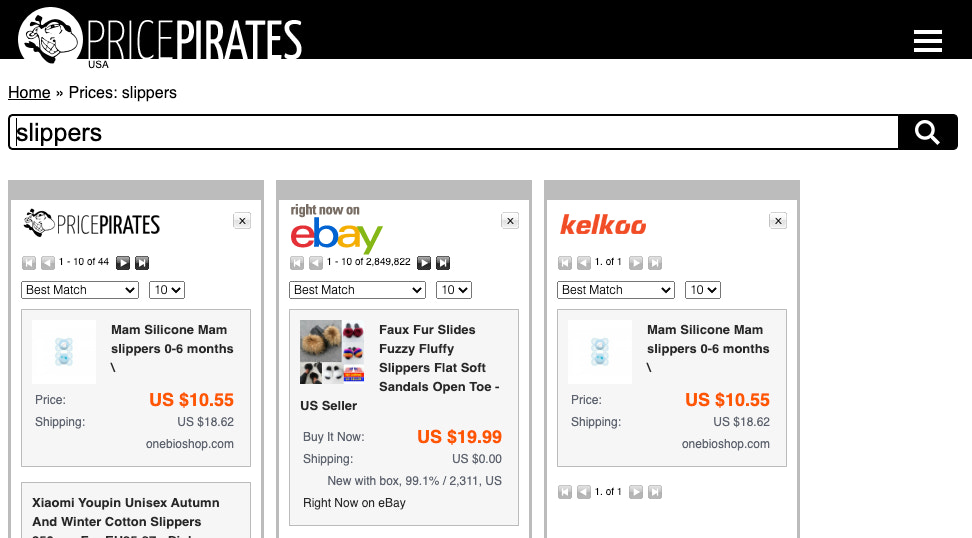
Germany-based price comparison toolPricepiratesalso offers versions for the US, Austria, Switzerland, and the UK. Consumers can scan top sellers and products by category or enter a specific search query for the item they’re interested in. Results are typically from eBay or Amazon. Pricepirates also has mobile apps for iOS and Android.
11. Honey
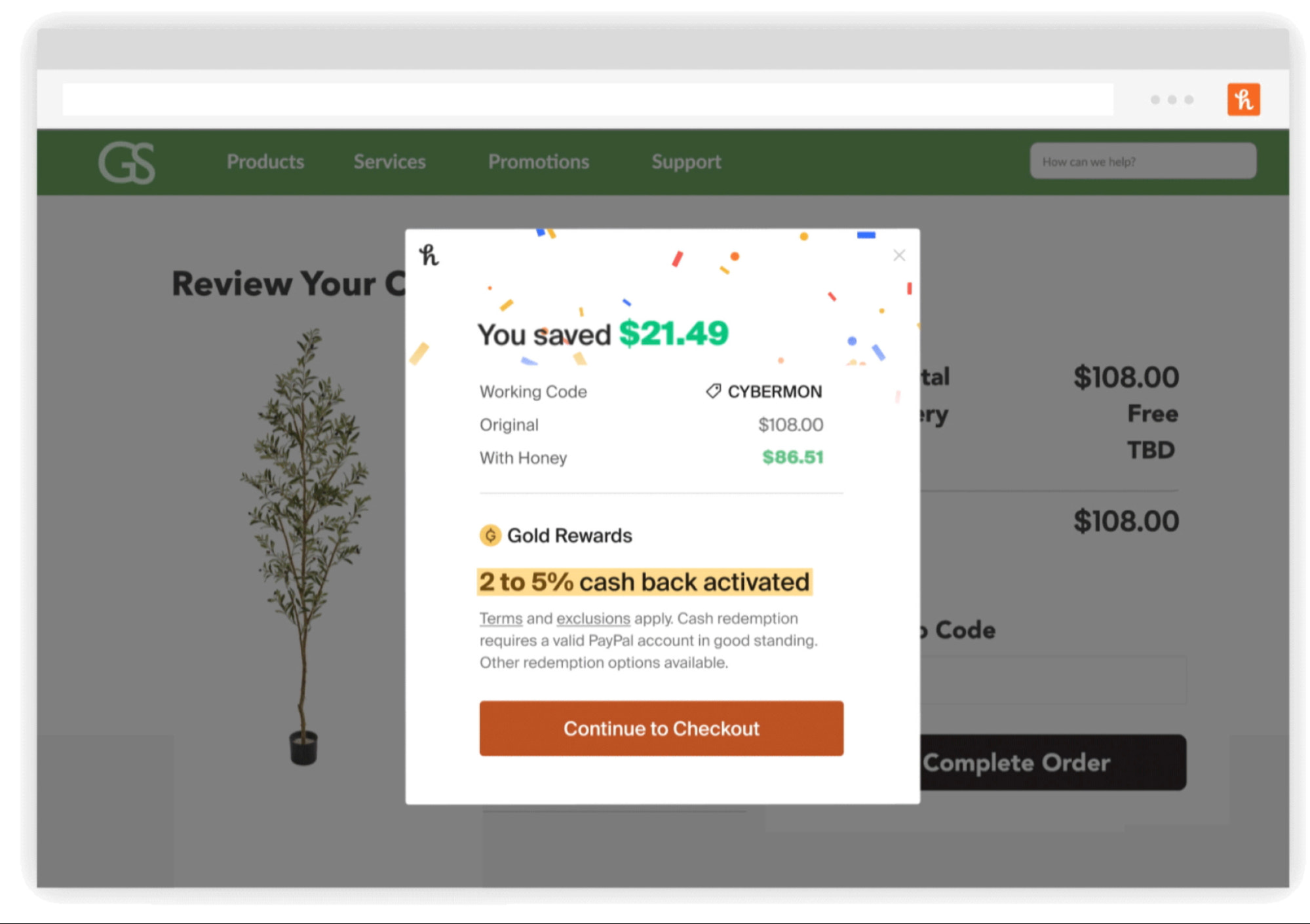
While not a traditional comparison site,Honeyis a free browser extension from PayPal that searches for discounts and coupon codes associated with your checkout basket. The app also has a favorites list feature that tracks products and notifies you when prices are low. Honey says its users save an average of $126 per year.
12. Price.com
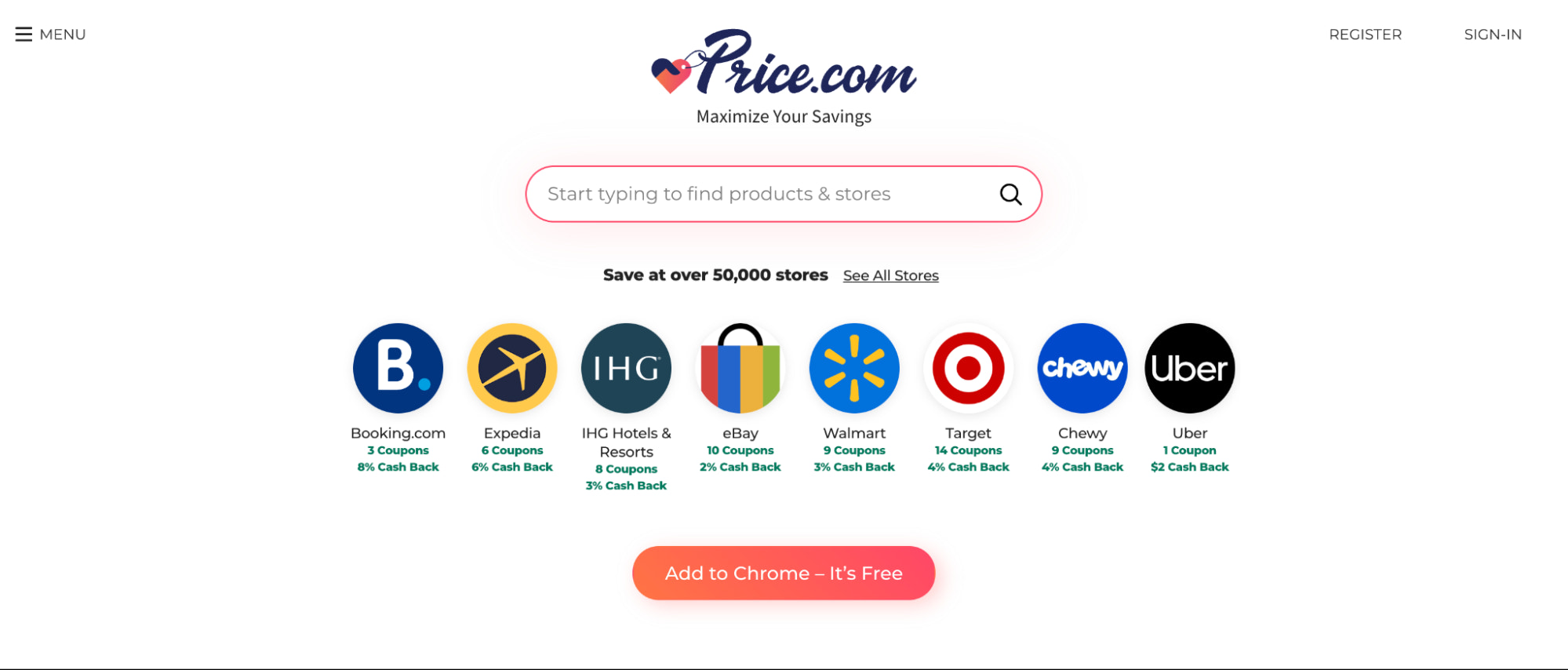
Price.comis available as a desktop website and a Chrome extension. It finds discounts and coupon codes for more than 50,000 popular stores, including Chewy, Target, and Walmart. When browsing ecommerce stores, the Price.com extension will compare product prices and notify users if a lower price is available elsewhere.
Best price comparison websites for global shoppers
1. PriceRunner

PriceRunner’s free-to-use price comparison engine allows shoppers to compare prices from retailers all over the UK. Pricerunner is available for use in the UK, Sweden, Denmark, and Norway.
2. SkinFlint

Skinflintis a price comparison website that’s popular with dropshippers based in the UK and EU. With Skinflint, shoppers and retailers can search for and compare products fromwholesale retailersacross Europe.
3. Shopbot

Shopbotallows shoppers to search and compare products from multiple retailers. Shopbot also has an extensiveblogthat includes buyers guides, product reviews, and advice on what to look for when purchasing specific products.
Shopbot is available for shoppers in Canada, New Zealand, and Australia.
4. Pricebat

PriceBatis a Canadian site for comparing product prices with a focus on computer accessories and other electronics. For retailers in need of office supplies, PriceBat finds the best deals on printers, ink cartridges, and laptops.
5. Getprice

Getpricelists and compares products from Australian retailers, with city-specific filters for Australian retailers who want to save on shipping times by purchasing locally. Getprice boasts more than 3.5 million products from over 1,200 retailers across Australia.
6. PriceSpy

PriceSpy拥有各种各样的比价平台of products from retailers all over the UK. PriceSpy’s comprehensive search allows you to filter for specific brands and categories. Shoppers can even view the pricing history for some products, allowing them to see if the current price is lower or higher than it was previously.
Best price comparison websites and apps for Shopify merchants
For merchants who want to display their products on price comparison websites, theShopify App Storecontains several relevantShopify apps.
There are two main types of price comparison apps for store builders: those that connect to your store and list your products on an external site or marketplace, and those that integrate product comparison features into your website.
1. Prisync
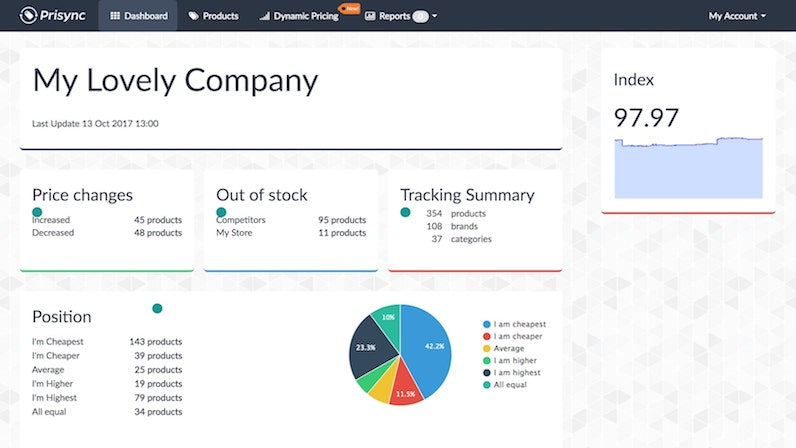
Dynamic Pricing Optimization by Prisyncis a back-end tool that lets Shopify store owners spy on competitor pricing. Adjust your own pricing strategy accordingly or use the app’s dynamic pricing feature to automatically change yours based on the competitive landscape. You can also see stock availability, set email notifications, and export data in Excel.
2. PriceMole
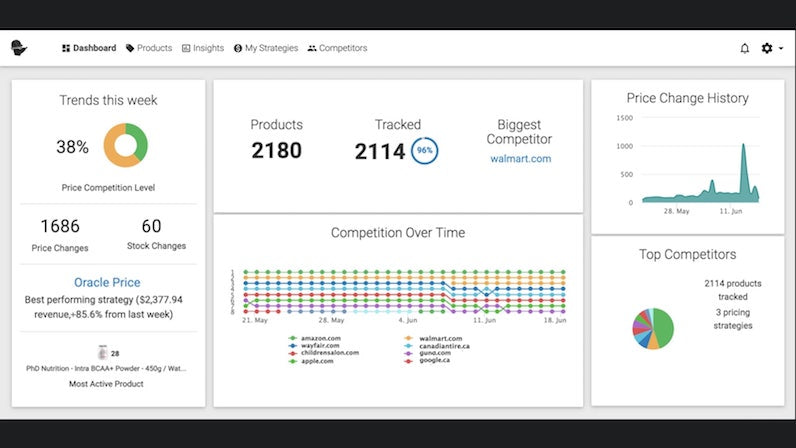
Similar to Prisync,PriceMoletracks competitor pricing to inform your strategy. It also tracks stock levels, has dynamic pricing, and includes email alerts.
3. MyShopping Datafeed

MyShopping Datafeedis a comparison app available to Australia-based Shopify stores. The app is free and lists your products alongside more than 11 million others. Stores of all sizes, even merchants with more than 1,000 products, can use MyShopping.
4. Price Comparison and Affiliate by Arrow
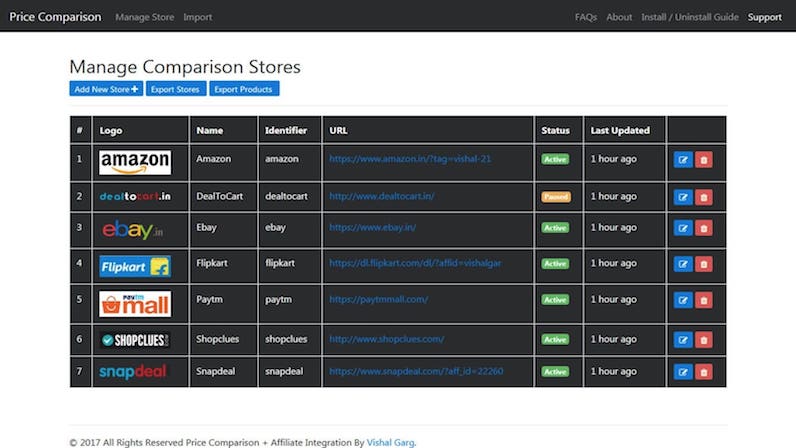
ThePrice Comparison and Affiliateapp by Arrow pulls in competitor pricing and displays it on your Shopify site, letting you promote how low your prices are and how expensive the items are elsewhere. Though you don’t want users to click away from your site, those click-throughs can turn into earnedaffiliatesales—so it’s not a complete loss.
5. Product Compare
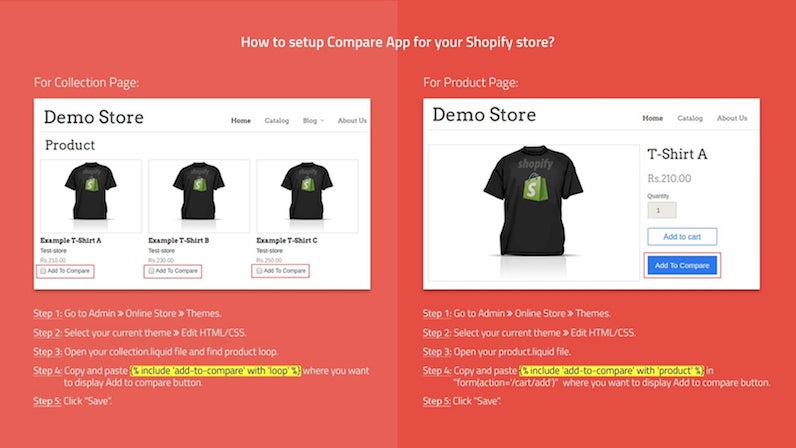
Product Comparelets merchants pitch their own products against each other. Product Compare makes these lists shareable, so shoppers can send them to friends and family for their opinions. It also aids in product discovery, suggesting similar products to compare.
6. Compare Products by Omega
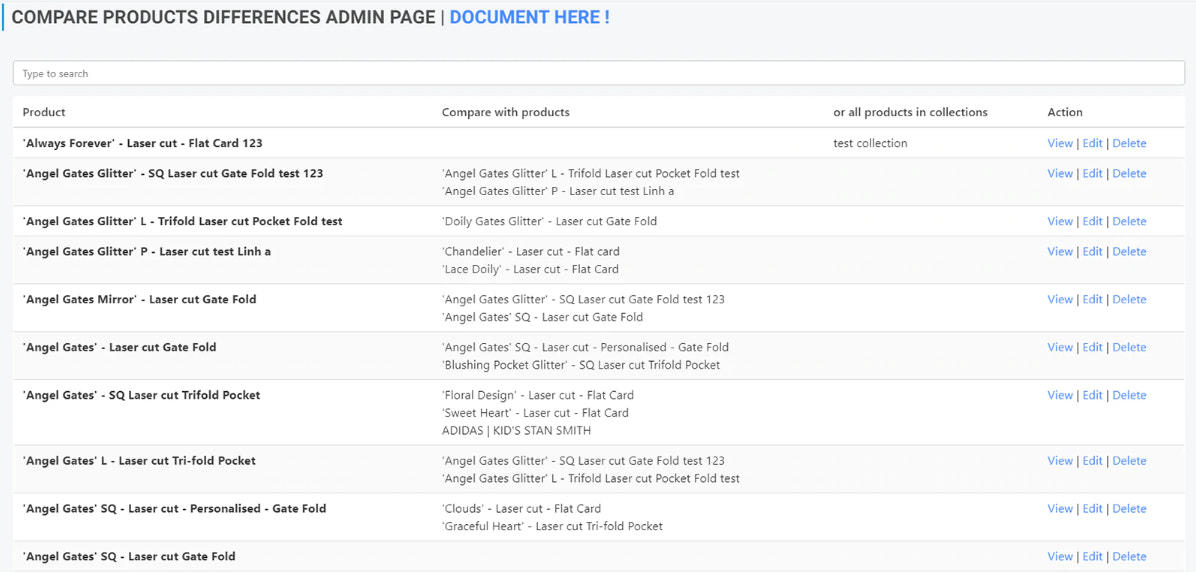
TheCompare Products by Omegaapp is (not surprisingly) similar to Product Compare, in that it helps customers put products side by side and choose which is best for them. Each product page has a detailed chart depicting price, ratings, stock level, and variants.
7. Lengow
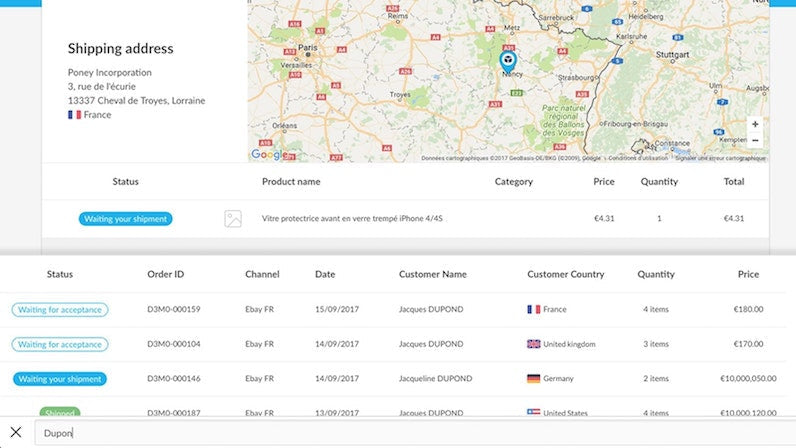
Lengowincorporatessocial media selling, affiliate platforms, and ad retargeting. The tool comes with analytics reporting so you can optimize product listings to increase sales.
Getting products listed on price comparison websites
To be listed on a comparison site, most platforms require retailers to submit a formatted product feed. Product information must meet a defined specification and should be updated frequently. Price comparison platforms use scripts to parse and ingest the data from the feed, displaying products on results pages as appropriate.
Shopify merchants have access to several apps that make submitting product feeds to comparison sites easier (and, in some cases, automatic). Regardless of how a feed is created, it’s worth taking time to craft product descriptions and check pricing data before promoting your goods across the internet.
Grow your business with price comparison sites
If your products are listed for competitive prices, price comparison websites are an effective way to get in front of interested customers.
Whether you’re comparing your products or putting them up against the competition, comparison apps and features can be a great way to ease buyer hesitation and build confidence for shoppers.
Ready to create your first business? Start your free trial of Shopify—no credit card required.
Illustration by George WylesolPrice comparison FAQ
How do price comparison sites work?
For consumers, price comparison sites work like a search engine, sourcing current product information and displaying offers from multiple retailers to show how they stack up against one another.
Some price comparison websites include features that allow users to track product prices over time, find coupon codes, or get notified about sale events.
For merchants, comparison sites have their own rules for integrating product feeds. You may need to pay a fee and submit the required content (product photos, URL, price, description, etc.) to have your products listed. Your products will then appear for relevant searches against comparable products ranked by price.
Comparison platforms can help you develop yourpricing strategy. You don’t want to price yourself out of consideration, but you need to make sure you charge enough to turn a profit.
What’s the best price comparison site?
Comparison websites like Google Shopping and Shopzilla let customers compare a vast number of products by price, while comparison apps like Honey search for discounts associated with your checkout basket.
For merchants, the best price comparison site depends on your widerecommerce strategy. Some comparison apps allow customers to compare products within your website, while others display your products against competitors. Consider where your customers go to compare prices and the product features they're more interested in.
Are there websites that compare prices?
- Google Shopping
- Shopzilla
- Become
- Bizrate
- Camelcamelcamel
- ShopMania
- BuyVia
- ShopSavvy
- Yahoo! Shopping
- Pricepirates
- PriceRunner
- SkinFlint
- Shopbot
- Pricebat
- Getprice
- PriceSpy
- Honey
What are some things to consider when comparing prices?
When comparing prices of products, make sure to take into account where the product is being shipped from, as well as the brand, material, and quality of the product.

